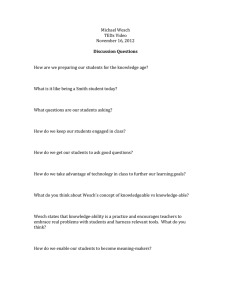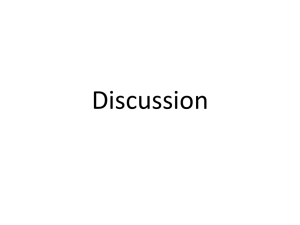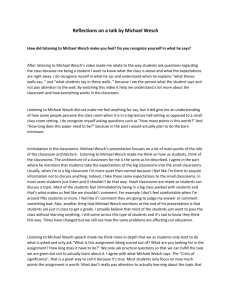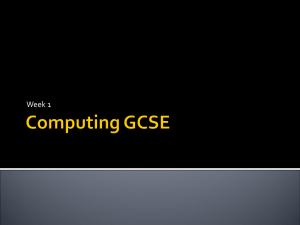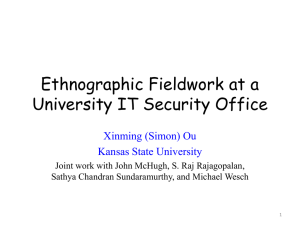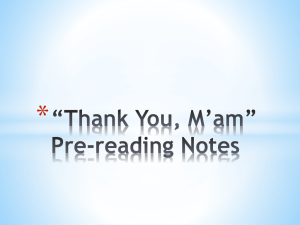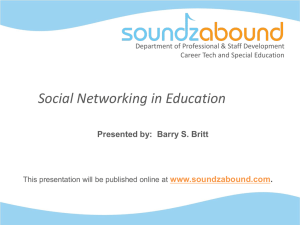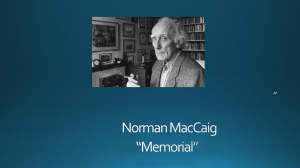Pre-Intermediate Student*s Book
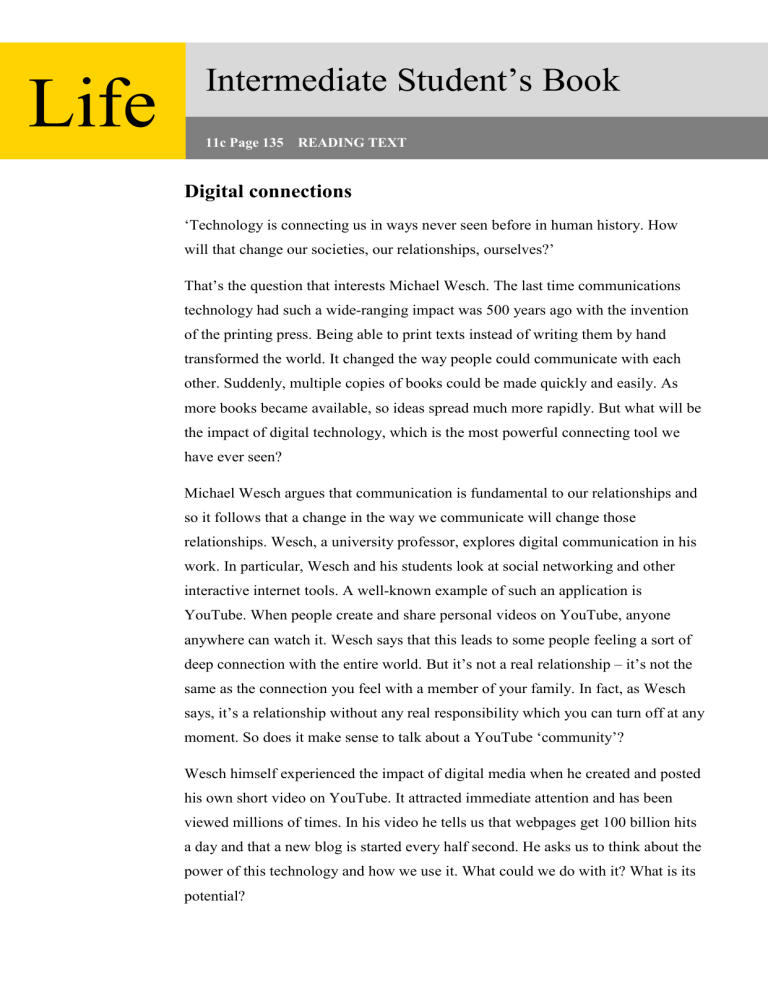
Life
Intermediate Student’s Book
11c Page 135 READING TEXT
Digital connections
‘Technology is connecting us in ways never seen before in human history. How will that change our societies, our relationships, ourselves?’
That’s the question that interests Michael Wesch. The last time communications technology had such a wide-ranging impact was 500 years ago with the invention of the printing press. Being able to print texts instead of writing them by hand transformed the world. It changed the way people could communicate with each other. Suddenly, multiple copies of books could be made quickly and easily. As more books became available, so ideas spread much more rapidly. But what will be the impact of digital technology, which is the most powerful connecting tool we have ever seen?
Michael Wesch argues that communication is fundamental to our relationships and so it follows that a change in the way we communicate will change those relationships. Wesch, a university professor, explores digital communication in his work. In particular, Wesch and his students look at social networking and other interactive internet tools. A well-known example of such an application is
YouTube. When people create and share personal videos on YouTube, anyone anywhere can watch it. Wesch says that this leads to some people feeling a sort of deep connection with the entire world. But it’s not a real relationship – it’s not the same as the connection you feel with a member of your family. In fact, as Wesch says, it’s a relationship without any real responsibility which you can turn off at any moment. So does it make sense to talk about a YouTube ‘community’?
Wesch himself experienced the impact of digital media when he created and posted his own short video on YouTube. It attracted immediate attention and has been viewed millions of times. In his video he tells us that webpages get 100 billion hits a day and that a new blog is started every half second. He asks us to think about the power of this technology and how we use it. What could we do with it? What is its potential?
Life Wesch isn’t interested in what new media was originally designed for but in how it can be used in other ways. For example, he describes how people organise social protests such as gathering signatures for online petitions via Facebook. He says that he tries to make sure his students end up in control of the technology, not vice versa.
Outside of university, in the real world, Wesch believes it’s crucial for people to be able to operate in the new environment of digital media and to use it for the greatest possible impact. ‘It’s the tragedy of our times that we are now so connected we fail to see it. I want to believe that technology can help us see relationships and global connections in positive new ways. It’s pretty amazing that I have this little box sitting on my desk through which I can talk to any one of a billion people. And yet do any of us really use it for all the potential that’s there?’ petition (n) /pə ˈ tɪʃ(ə)n/ a written request signed by many people, usually to ask for action by an authority potential (n) /pə ˈ tenʃ(ə)l/ what something could become in the future
